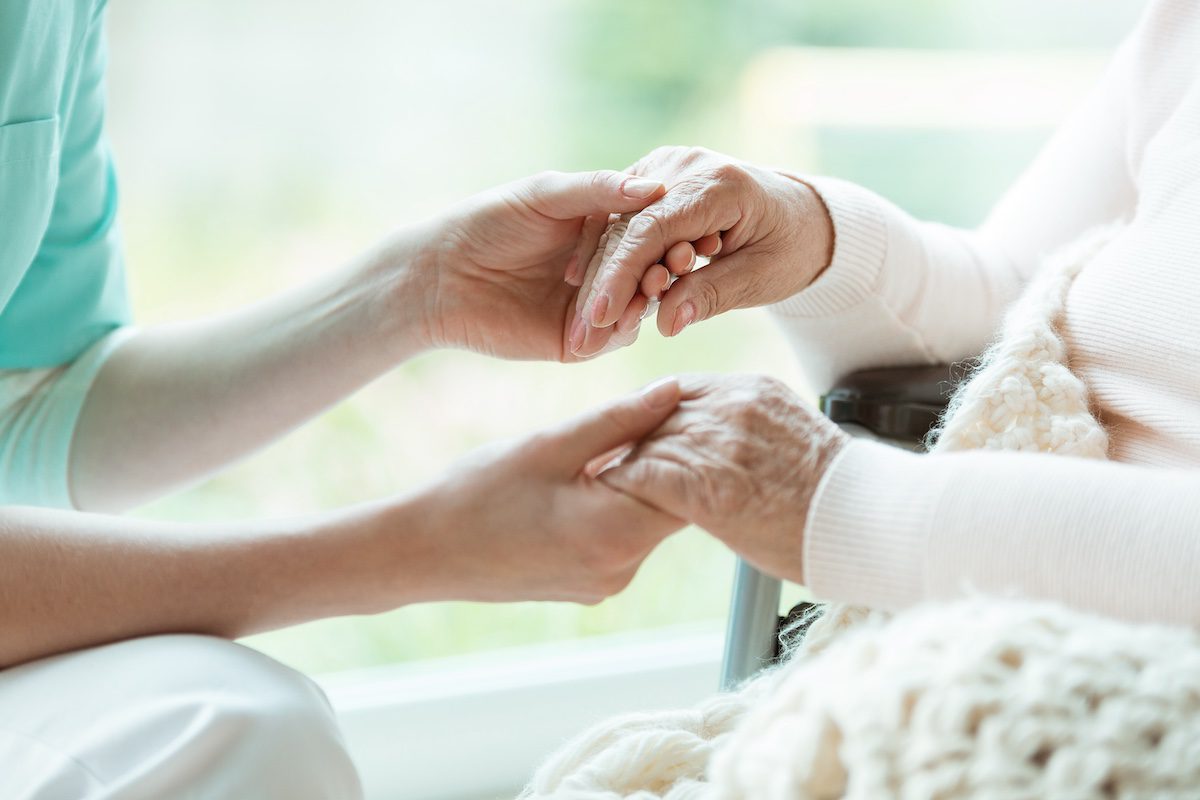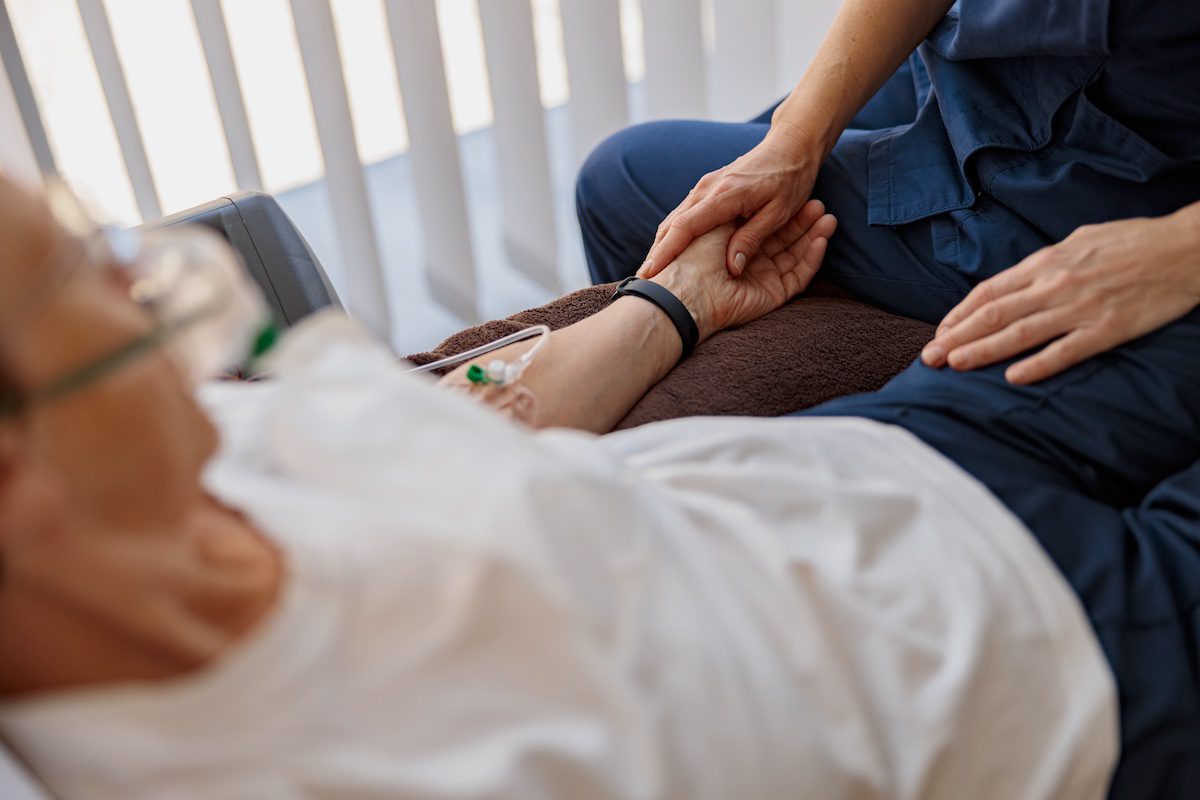Dignity Is Everything

In end-of-life care, maintaining dignity is of utmost importance. It involves honoring individuals’ inherent worth and value, even during their final stages of life. In end-of-life care, preserving dignity is incredibly important. The end-of-life phase is a delicate and sensitive time for individuals, and ensuring that their dignity is maintained becomes paramount. It involves recognizing their worth and treating them with respect, compassion, and empathy. When dignity is upheld, it positively impacts the overall well-being and quality of life for those receiving end-of-life care. We are going to explore the key considerations and strategies for upholding dignity in end-of-life care, ensuring that individuals receive compassionate and dignified support during this challenging time.
Understanding End-of-Life Care
End-of-life care refers to the medical, emotional, and spiritual support provided to individuals who are nearing the end of their lives. It aims to enhance the quality of life for patients with terminal illnesses and focuses on managing symptoms, promoting comfort, and addressing their emotional and psychological needs.
The Significance of Dignity in End-of-Life Care
Dignity is a fundamental human right that should be respected in all stages of life, including the end-of-life phase. It plays a pivotal role in preserving the individual’s sense of self-worth, identity, and autonomy. Recognizing and upholding dignity is essential for promoting the emotional well-being and overall quality of life of individuals receiving end-of-life care.
Promoting Physical Comfort
Physical comfort is crucial in maintaining dignity during end-of-life care. Adequate pain management and symptom control are essential to ensure that individuals are free from unnecessary suffering. This can involve administering pain medication, positioning for comfort, and assisting with activities of daily living.
Ensuring Emotional Support
End-of-life care can be emotionally challenging for patients and their loved ones. Emotional support is vital to maintaining dignity and fostering a sense of security, comfort, and understanding. Listening attentively, offering reassurance, and creating a compassionate environment help individuals feel valued, respected, and emotionally supported.
Respecting Personal Autonomy
Respecting personal autonomy is a key aspect of maintaining dignity in end-of-life care. It involves recognizing and honoring an individual’s right to make decisions about their care, treatment options, and end-of-life preferences. Healthcare providers should engage in open and honest discussions, ensuring that patients’ wishes and choices are respected to the greatest extent possible.
Ensuring Privacy and Confidentiality
Respecting privacy and confidentiality is essential in preserving dignity during end-of-life care. Individuals should be afforded private spaces where they can have personal conversations, spend time with loved ones, and maintain a sense of control over their lives. Healthcare professionals must uphold strict confidentiality standards to protect sensitive information.

Cultivating a Supportive Environment
Creating a supportive environment is crucial for maintaining dignity in end-of-life care. This involves fostering a culture of empathy, compassion, and understanding within healthcare settings. Staff should receive training to enhance their communication skills and develop a deep understanding of individuals’ unique needs and challenges in the end-of-life phase.
Addressing Spiritual Needs
Spirituality plays a significant role in many individuals’ lives, particularly during the end-of-life journey. Healthcare providers should recognize and respect diverse spiritual beliefs, offering spiritual support and guidance opportunities if desired. This may involve facilitating discussions with chaplains and religious leaders or providing access to sacred texts and rituals.
Promoting Family Involvement
Including family members and loved ones in the care, process is crucial for maintaining dignity in end-of-life care. Their presence, support, and involvement can offer comfort and reassurance to patients. Healthcare providers should encourage open communication with families, ensuring they are well informed about the patient’s condition, treatment options, and end-of-life decisions. Support from family can often be the one thing that makes everything seem normal for someone going through this trying time.
Offering Palliative Care Services
Palliative care focuses on improving the quality of life for individuals with serious illnesses, including those nearing the end of their lives. It addresses physical symptoms, emotional distress, and spiritual concerns. While many are still on the fence about the ethics of this process, by integrating palliative care into end-of-life services, healthcare providers can better meet the diverse needs of patients while upholding their dignity.
Treating Them Humanely
Ultimately, hospice care workers should remember that, above all else, those at the end of their lives are still people and still want to live the life they have left. It can be hard not to see the disease over the person, but it has to be that way for dignity to thrive. There are still some questions that we have to answer, though, on hospice’s role and authority in this. A hospice provides specialized care for individuals nearing the end of their lives. Its primary goal is to ensure comfort, emotional support, and dignity for patients and their families. Hospice teams consist of healthcare professionals, volunteers, and counselors who work collaboratively to address patients’ physical, emotional, and spiritual needs.
Frequently Asked Questions (FAQs)
What is the role of a hospice in maintaining dignity in end-of-life care?
Answer: Hospices play a crucial role in maintaining dignity by providing comprehensive end-of-life care that focuses on individual preferences, pain management, emotional support, and spiritual guidance. They create a supportive environment where patients can spend their remaining days with dignity, surrounded by loved ones.
How can healthcare providers address cultural differences in maintaining dignity?
Answer: Healthcare providers should be culturally competent and sensitive to diverse cultural beliefs and practices. By understanding and respecting different cultural perspectives, they can tailor care plans to meet the specific needs and preferences of individuals from various backgrounds. This ensures that dignity is maintained while honoring cultural values and traditions.
What are advance directives, and how do they help maintain dignity in end-of-life care?
Answer: Advance directives are legal documents that allow individuals to express their treatment preferences and end-of-life wishes in advance. They include living wills and durable power of attorney for healthcare. By documenting their preferences, individuals can ensure that their wishes are respected, even when they can no longer communicate or make decisions.
How can communication enhance dignity in end-of-life care?
Answer: Effective communication is vital for maintaining dignity in end-of-life care. Healthcare providers should engage in compassionate conversations, actively listening to patients’ concerns, fears, and preferences. By facilitating open dialogue, healthcare providers can ensure that individuals feel heard, respected, and involved in decisions about their care.
What resources are available for emotional support during end-of-life care?
Answer: Various resources are available to provide emotional support during end-of-life care. These can include social workers, counselors, support groups, and grief and bereavement counseling therapists. Additionally, organizations such as hospices and palliative care services often offer counseling services to address the emotional needs of patients and their families.
How can individuals maintain their dignity when faced with a terminal illness?
Answer: Individuals facing a terminal illness can maintain their dignity by actively participating in their care, expressing their preferences, and making decisions that align with their values. Open communication with healthcare providers, seeking emotional support from loved ones, and engaging in activities that bring joy and meaning can also contribute to maintaining dignity throughout the end-of-life journey.

Conclusion
Maintaining dignity in end-of-life care is a multifaceted endeavor that requires a holistic approach. By focusing on physical comfort, emotional support, personal autonomy, and creating a supportive environment, healthcare providers can ensure that individuals receive compassionate and dignified care during their final stages of life. By respecting cultural differences, offering palliative care services, and addressing spiritual needs, the dignity of patients can be upheld. Through open communication, family involvement, and the use of advance directives, individuals can actively participate in their care and maintain their sense of dignity until the end.


